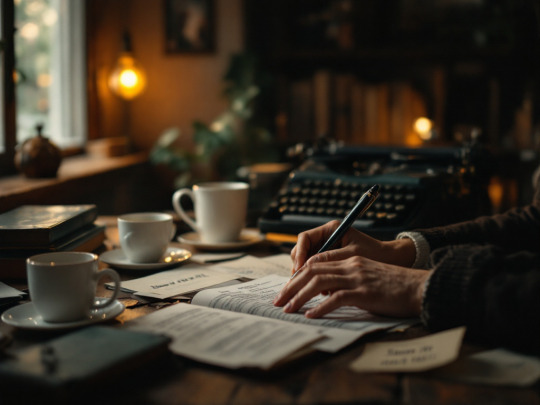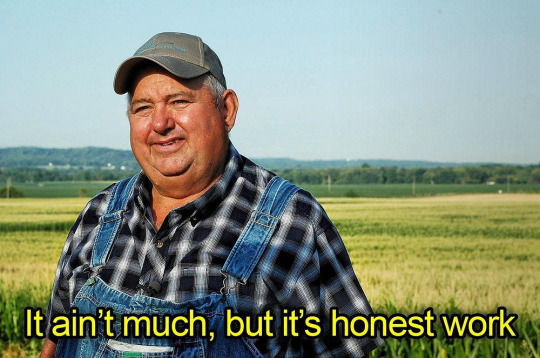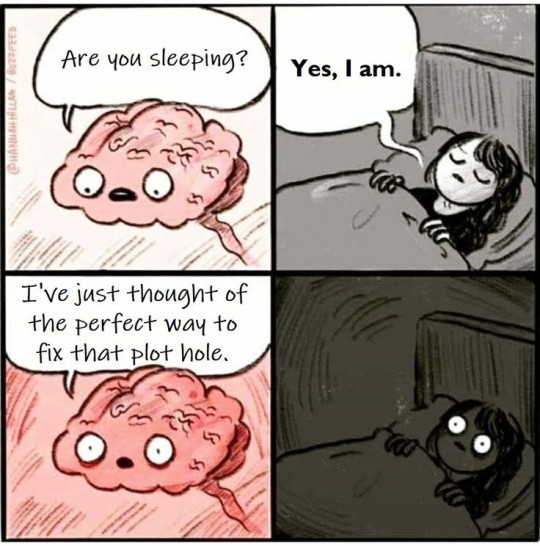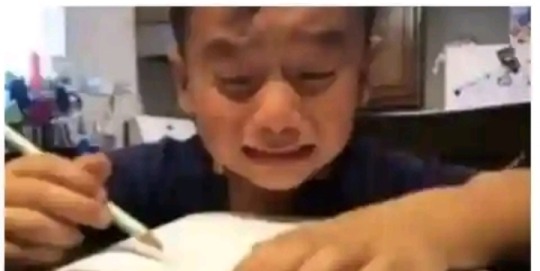#Creative Writing Blog
Explore tagged Tumblr posts
Text
How to Use Backstory Without Info-Dumping
Backstory adds emotional depth, context, and richness to your characters and plot—but drop it all at once, and you risk grinding your story to a halt. Info-dumping is one of the most common pitfalls in fiction writing, especially for newer writers who are eager to explain everything up front. So how do you incorporate backstory naturally without overwhelming your readers? Let’s break it down…

View On WordPress
#avoid info-dumping#Character Development#creative writing blog#fiction writing craft#how to use backstory#Narrative Structure#pacing and exposition#Show Don&039;t Tell#Storytelling Techniques#Writing Advice#writing better fiction#writing realistic characters#Writing Tips
2 notes
·
View notes
Text
masterpost !!
welcome to the writers' house !! see below a masterlist of my work !!
there's nothing here, yet !! check back tomorrow !!
#writing#creative writing#fiction#folklore#fantasy#authors#new age literature#portfolio#blog#creative writing blog
2 notes
·
View notes
Text


#poem#poemontumblr#poet#poetry#spotify#ok#creative writing#creative writing blog#nature#nature poem#writing#i need to do my essay#i just want to watch#dan and phil
2 notes
·
View notes
Text
ok well the sky thing is fixed. that was pretty easy. also, it appears that I've some form of compatriot in @marco-robinson. marco appears to know more about infernoturgy than me, considering he mentioned it and I previously had no clue such a thing existed. I mean, there was that book that one time... but considering the nature of the post introducing me to it, that book is probably better off closed. another marco.. interesting.
2 notes
·
View notes
Text
About the Author
Hello, my main my blog is @chai-cow-ski, and here is where I try to post my writing, writing-themed posts, prompts, and pieces of creative writing I come across while scrolling.
I am a young writer in my mid-twenties, and enjoy writing across a variety of genres. I have written fantasy, romance (including queer), science fiction, nonfiction, poetry. If I have an idea I like, I run with it as long as I can. I graduated from college about three years ago and have slowly been coming back into myself as a creative writer. I am always open to suggestions for new or current stories, and I love tag games!
The Lucien Project
The Lucien Project is my most current and most worked on WIP. The novel's main character is Lucien, a child-science-experiment raised in a hospital. Lucien cannot speak, and physically cannot withstand hearing people talk around him or to him. Lucien can, however, send telepathic images as messages to any person he makes eye contact with. You can catch-up on this project at this link!
2 notes
·
View notes
Text
10 Non-Lethal Injuries to Add Pain to Your Writing
New Part: 10 Lethal Injury Ideas
If you need a simple way to make your characters feel pain, here are some ideas:
1. Sprained Ankle
A common injury that can severely limit mobility. This is useful because your characters will have to experience a mild struggle and adapt their plans to their new lack of mobiliy. Perfect to add tension to a chase scene.
2. Rib Contusion
A painful bruise on the ribs can make breathing difficult, helping you sneak in those ragged wheezes during a fight scene. Could also be used for something sport-related! It's impactful enough to leave a lingering pain but not enough to hinder their overall movement.
3. Concussions
This common brain injury can lead to confusion, dizziness, and mood swings, affecting a character’s judgment heavily. It can also cause mild amnesia.
I enjoy using concussions when you need another character to subtly take over the fight/scene, it's an easy way to switch POVs. You could also use it if you need a 'cute' recovery moment with A and B.
4. Fractured Finger
A broken finger can complicate tasks that require fine motor skills. This would be perfect for characters like artists, writers, etc. Or, a fighter who brushes it off as nothing till they try to throw a punch and are hit with pain.
5. Road Rash
Road rash is an abrasion caused by friction. Aka scraping skin. The raw, painful sting resulting from a fall can be a quick but effective way to add pain to your writing. Tip: it's great if you need a mild injury for a child.
6. Shoulder Dislocation
This injury can be excruciating and often leads to an inability to use one arm, forcing characters to confront their limitations while adding urgency to their situation. Good for torture scenes.
7. Deep Laceration
A deep laceration is a cut that requires stitches. As someone who got stitches as a kid, they really aren't that bad! A 2-3 inch wound (in length) provides just enough pain and blood to add that dramatic flair to your writing while not severely deterring your character.
This is also a great wound to look back on since it often scars. Note: the deeper and wider the cut the worse your character's condition. Don't give them a 5 inch deep gash and call that mild.
8. Burns
Whether from fire, chemicals, or hot surfaces, burns can cause intense suffering and lingering trauma. Like the previous injury, the lasting physical and emotional trauma of a burn is a great wound for characters to look back on.
If you want to explore writing burns, read here.
9. Pulled Muscle
This can create ongoing pain and restrict movement, offering a window to force your character to lean on another. Note: I personally use muscle related injuries when I want to focus more on the pain and sprains to focus on a lack of mobility.
10. Tendonitis
Inflammation of a tendon can cause chronic pain and limit a character's ability to perform tasks they usually take for granted. When exploring tendonitis make sure you research well as this can easily turn into a more severe injury.
This is a quick, brief list of ideas to provide writers inspiration. Since it is a shorter blog, I have not covered the injuries in detail. This is inspiration, not a thorough guide. Happy writing! :)
Looking For More Writing Tips And Tricks?
Check out the rest of Quillology with Haya; a blog dedicated to writing and publishing tips for authors!
Instagram Tiktok
#hayatheauthor#haya's book blog#haya blogs#writing community#quillology with haya#writing tools#writer things#writing advice#writer community#writing techniques#writing prompt#writing stuff#creative writing#ya writing advice#writing tips and tricks#writer tools#writers of tumblr#writer blog#writers block#quillology with haya sameer#writers on tumblr#writerscommunity#writer stuff#author help#author advice#author#writing inspiration#writeblr#novel writing#on writing
60K notes
·
View notes
Text
*writes two paragraphs after months of literally nothing and it took three hours*

#theaftersundown#writers on tumblr#creative writing#novel writing#writerscommunity#female writers#fanfiction#artists on tumblr#archive of our own#romance novels#graphic novel#writers block#writing memes#writing motivation#aspiring writer#writers of tumblr#ao3 writer#writeblr#writers and poets#amwriting#ao3#fiction writing#currently reading#books and reading#book blog#writing life#writing prompt#creative process#ao3feed#ao3 fanfic
44K notes
·
View notes
Text
Body Language
When someone is...
Sad

Face/Body:
Avoidant/reduced eye contact
Drooping eyelids
Downcast eyes
Frowning
Raised inner ends of eyebrows
Dropped or furrowed eyebrows
Quivering lip/biting lip
Wrinkled nose
Voice:
Soft pitch
Low lone
Pauses/hesitant speech
Quiet/breathy
Slow speech
Voice cracks/breaking voice
Gestures/Posture:
Slouching/lowered head
Rigid/tense posture
Half formed/slow movement
Fidgeting or clasped hands
Sniffing or heavy swallows
Self soothing gestures (running hands over the arms, hand over heart, holding face in palms, etc)
#writersbloxx#creative writing#snippet#my writing#short story#story#writers on tumblr#writers community#writing#writeblr#writers and poets#writers block#writers blog#writersblr#writing prompt#writing community#writing advice#writing tips#writing inspiration#aspiring author#aspiring writer#writerscommunity
16K notes
·
View notes
Text

Cause of my insomnia number one:
#writer#writers on tumblr#writerscommunity#writing#books#books and reading#creative writing#my writing#writer things#writeblr#writers#write#writings#writers community#writing community#creative writers#writer community#writing stuff#writing struggles#writers on writing#writers life#writers blog#writers block#writing life#writing blog#writing books#writing block
12K notes
·
View notes
Text
Other Words for "Look" + With meanings | List for writers
Many people create lists of synonyms for the word 'said,' but what about the word 'look'? Here are some synonyms that I enjoy using in my writing, along with their meanings for your reference. While all these words relate to 'look,' they each carry distinct meanings and nuances, so I thought it would be helpful to provide meanings for each one.
Gaze - To look steadily and intently, especially in admiration or thought.
Glance - A brief or hurried look.
Peek - A quick and typically secretive look.
Peer - To look with difficulty or concentration.
Scan - To look over quickly but thoroughly.
Observe - To watch carefully and attentively.
Inspect - To look at closely in order to assess condition or quality.
Stare - To look fixedly or vacantly at someone or something.
Glimpse - To see or perceive briefly or partially.
Eye - To look or stare at intently.
Peruse - To read or examine something with great care.
Scrutinize - To examine or inspect closely and thoroughly.
Behold - To see or observe a thing or person, especially a remarkable one.
Witness - To see something happen, typically a significant event.
Spot - To see, notice, or recognize someone or something.
Contemplate - To look thoughtfully for a long time at.
Sight - To suddenly or unexpectedly see something or someone.
Ogle - To stare at in a lecherous manner.
Leer - To look or gaze in an unpleasant, malicious way.
Gawk - To stare openly and stupidly.
Gape - To stare with one's mouth open wide, in amazement.
Squint - To look with eyes partially closed.
Regard - To consider or think of in a specified way.
Admire - To regard with pleasure, wonder, and approval.
Skim - To look through quickly to gain superficial knowledge.
Reconnoiter - To make a military observation of a region.
Flick - To look or move the eyes quickly.
Rake - To look through something rapidly and unsystematically.
Glare - To look angrily or fiercely.
Peep - To look quickly and secretly through an opening.
Focus - To concentrate one's visual effort on.
Discover - To find or realize something not clear before.
Spot-check - To examine something briefly or at random.
Devour - To look over with eager enthusiasm.
Examine - To inspect in detail to determine condition.
Feast one's eyes - To look at something with great enjoyment.
Catch sight of - To suddenly or unexpectedly see.
Clap eyes on - To suddenly see someone or something.
Set eyes on - To look at, especially for the first time.
Take a dekko - Colloquial for taking a look.
Leer at - To look or gaze in a suggestive manner.
Rubberneck - To stare at something in a foolish way.
Make out - To manage to see or read with difficulty.
Lay eyes on - To see or look at.
Pore over - To look at or read something intently.
Ogle at - To look at in a lecherous or predatory way.
Pry - To look or inquire into something in a determined manner.
Dart - To look quickly or furtively.
Drink in - To look at with great enjoyment or fascination.
Bask in - To look at or enjoy something for a period of time.
#on writing#creative writing#writing#writing tips#writers block#how to write#thewriteadviceforwriters#writeblr#writers and poets#writers on tumblr#novel writing#fiction writing#romance writing#writing advice#writing blog#writing characters#writing community#writing help#writing ideas#writing inspiration#writing guide#writing prompts#writing a book#writing resources#writing reference#writing tips and tricks#writers#writing tools#writing life#writing software
16K notes
·
View notes
Text
How to Write a Synopsis
Crafting a Clear and Compelling Summary of Your Story Whether you’re submitting to agents, pitching to publishers, or preparing marketing materials, being able to write a strong synopsis is an essential skill for any writer. A synopsis is a condensed summary of your story that highlights the key plot points, characters, and themes—without giving way to unnecessary details or personal…

View On WordPress
#book marketing tips#creative writing blog#fiction synopsis tips#how to write a synopsis#novel writing guide#storytelling structure#synopsis for agents#writing a book synopsis#Writing Advice#writing query letters
1 note
·
View note
Text

Writers when it's time to write the story no one forced them to come up with in the first place 🙄
#writers on tumblr#authors#writeblr#writers and poets#writing#bookish#books#prose#writerscommunity#spilled thoughts#on writing#creative writing#author#booklr#book blog#bookworm#writers block#poets and writers#writing funny#book quotes#books and reading#art#writer memes#writer life#writer problems#ao3 writer#ao3#ao3 fanfic#female writers#wrapped 2024
19K notes
·
View notes
Text
oh ffs the sky just turned yellow

urgh I thought I stopped that from happening.
welp gotta go fix that I guess
2 notes
·
View notes
Text
If you’re having writers block…READ!!!! CONSUME MEDIA
I feel like I don’t hear that given enough as advice for writers block..just read? Watch tv? Movies? Find inspiration in media.
Writers block is a lack of inspiration, so go collect more.
#creative writing#writers on tumblr#writerscommunity#writing blog#writblr#writeblr#writing#aspiring writer#fantasy writing#writers life#female writers#fiction writing#novel writing#on writing#writers#writer#writer stuff#writerslife#writers of tumblr#writers community#writers block#writerblr#writers on writing#writing motivation#writing community#writing thoughts#writers and poets#young writer#writing tips#writing problems
19K notes
·
View notes
Text
100 Dialogue Tags You Can Use Instead of “Said”
For the writers struggling to rid themselves of the classic ‘said’. Some are repeated in different categories since they fit multiple ones (but those are counted once so it adds up to 100 new words).
1. Neutral Tags
Straightforward and unobtrusive dialogue tags:
Added, Replied, Stated, Remarked, Responded, Observed, Acknowledged, Commented, Noted, Voiced, Expressed, Shared, Answered, Mentioned, Declared.
2. Questioning Tags
Curious, interrogative dialogue tags:
Asked, Queried, Wondered, Probed, Inquired, Requested, Pondered, Demanded, Challenged, Interjected, Investigated, Countered, Snapped, Pleaded, Insisted.
3. Emotive Tags
Emotional dialogue tags:
Exclaimed, Shouted, Sobbed, Whispered, Cried, Hissed, Gasped, Laughed, Screamed, Stammered, Wailed, Murmured, Snarled, Choked, Barked.
4. Descriptive Tags
Insightful, tonal dialogue tags:
Muttered, Mumbled, Yelled, Uttered, Roared, Bellowed, Drawled, Spoke, Shrieked, Boomed, Snapped, Groaned, Rasped, Purred, Croaked.
5. Action-Oriented Tags
Movement-based dialogue tags:
Announced, Admitted, Interrupted, Joked, Suggested, Offered, Explained, Repeated, Advised, Warned, Agreed, Confirmed, Ordered, Reassured, Stated.
6. Conflict Tags
Argumentative, defiant dialogue tags:
Argued, Snapped, Retorted, Rebuked, Disputed, Objected, Contested, Barked, Protested, Countered, Growled, Scoffed, Sneered, Challenged, Huffed.
7. Agreement Tags
Understanding, compliant dialogue tags:
Agreed, Assented, Nodded, Confirmed, Replied, Conceded, Acknowledged, Accepted, Affirmed, Yielded, Supported, Echoed, Consented, Promised, Concurred.
8. Disagreement Tags
Resistant, defiant dialogue tags:
Denied, Disagreed, Refused, Argued, Contradicted, Insisted, Protested, Objected, Rejected, Declined, Countered, Challenged, Snubbed, Dismissed, Rebuked.
9. Confused Tags
Hesitant, uncertain dialogue tags:
Stammered, Hesitated, Fumbled, Babbled, Mumbled, Faltered, Stumbled, Wondered, Pondered, Stuttered, Blurted, Doubted, Confessed, Vacillated.
10. Surprise Tags
Shock-inducing dialogue tags:
Gasped, Stunned, Exclaimed, Blurted, Wondered, Staggered, Marvelled, Breathed, Recoiled, Jumped, Yelped, Shrieked, Stammered.
Note: everyone is entitled to their own opinion. No I am NOT telling people to abandon said and use these. Yes I understand that said is often good enough, but sometimes you WANT to draw attention to how the character is speaking. If you think adding an action/movement to your dialogue is 'good enough' hate to break it to you but that ruins immersion much more than a casual 'mumbled'. And for the last time: this is just a resource list, CALM DOWN. Hope that covers all the annoyingly redundant replies :)
Looking For More Writing Tips And Tricks?
Check out the rest of Quillology with Haya; a blog dedicated to writing and publishing tips for authors!
Instagram Tiktok
#hayatheauthor#haya's book blog#haya blogs#writing community#quillology with haya#writing tools#writer things#writing advice#writer community#writing techniques#writing prompt#writing stuff#creative writing#ya writing advice#writing tips and tricks#writer tools#writers of tumblr#writer blog#writers block#quillology with haya sameer#writers on tumblr#writerscommunity#writer stuff#author help#author advice#author#writing inspiration#writeblr#novel writing#on writing
29K notes
·
View notes
Text

fanfiction truly being the savior for everyones sanity
#theaftersundown#female writers#writers on tumblr#creative writing#fanfiction#novel writing#fanfic#fanfic writing#book blog#archive of our own#ao3 writer#ao3#ao3feed#romance novels#ao3 fanfic#fiction writing#writers block#writers of tumblr#writer stuff#writerscommunity#writeblr#writing memes#aspiring writer#writers and poets#writing life#writing#im just a girl#girl thoughts#girlblogging#hell is a teenage girl
51K notes
·
View notes